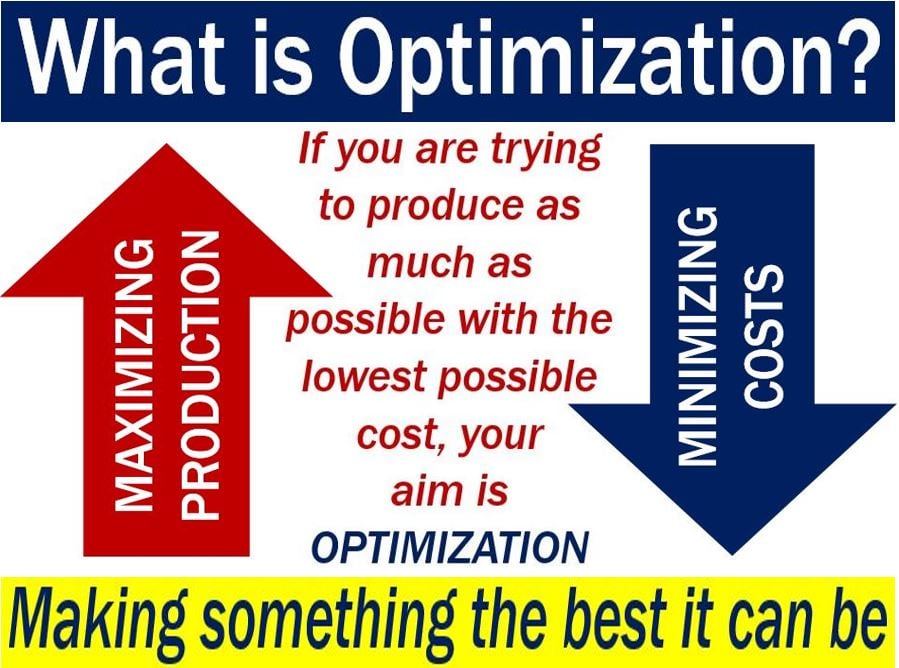Optimization refers to finding the best alternative. In other words, the alternative that is the most cost-effective and achieves the best result. Optimization in business usually involves aiming for the highest profits and lowest costs.
In other words, it is the act or process of making something as perfect, fully functional, or effective as possible.
In mathematics, the term refers to the selection of the best element from some set of available alternatives. This article focuses on the meanings of the term in the world of business.
Optimization vs. maximization
The term does not have the same meaning as maximization. Maximization refers only to trying to get the greatest result.
For example, maximization of production means achieving the highest production possible. However, with maximization, there is no regard for cost. Optimization involves maximizing production but also minimizing costs. When you have reached that objective, the company is at optimum capacity.

Optimization and automation
Automation is a technique or system of controlling a process by highly automatic means. This usually involves using computers, robots, and artificial intelligence (AI).
Optimization does not necessarily translate to automation. However, it is a cornerstone of many optimizing success stories.
In the retail sector, especially, automation in scheduling is crucial for effective optimization. It is therefore surprising that most retailers still use some form of manual scheduling.
In an article in Retail Info Systems, John Orr wrote:
“I’m amazed that two-thirds of retailers still use some form of manual scheduling. I’ve known some managers to keep two sets of schedules – the official, ‘optimized’ schedule that they submit for corporate review, and the unofficial, manually created schedule that is actually used in the store.”
Optimization of a business process
If you want to optimize a business process, you aim to make it more efficient and cost-effective. In other words, you want it to work faster and cost your company less money.
For example, if your company is processing documents manually, doing it digitally should speed things up. You would also achieve the same amount of work with fewer people. In other words, you would have lower costs.
This would be a good move if you are seeking optimization. However, simply purchasing the software and hardware is not enough. Hardware means the computers.
If both the digital and manual methods take the same amount of time, you have not optimized anything.
You need to train your staff. They must become experts at processing documents digitally. If you cannot train them, you will need to recruit people with the appropriate skills.
You also need to take a critical look at your company’s operations. This often means minimizing the resources to get the same results.
Technology
Optimization is much easier to achieve today thanks to technology. There are various digital tools software platforms, and analytics programs that can provide companies with unparalleled insights.
Video – Optimization
This Marketing Business Network video provides a basic introduction to the ideas behind optimization. It also gives us some examples.
